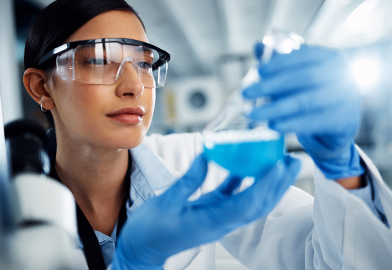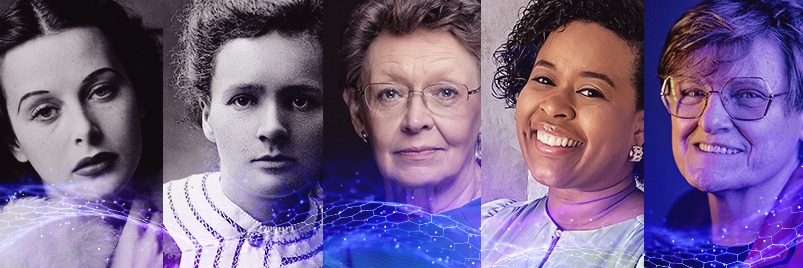Science
International Day of Women and Girls in Science
Igor Vianna - Our Managing Director


A woman’s place is in science.
While many still perceive the feminine universe as fragile and delicate, great names have stood out as true powerhouses in all areas of science. Their inventions and discoveries have ensured the survival of thousands of people, the development of societies, and the progress of the world. Despite the countless examples of these pioneers, only 33.3% of scientists are women. Imagine how much more we could achieve with greater balance in opportunities! Discover some incredible stories and get inspired!
Hypatia of Alexandria (351 – 370 AD) – The first female mathematician in history was also a philosopher and astronomer. She stood out for mapping the movement of celestial bodies.
Jaqueline Goes de Jesus – The Brazilian biomedical scientist led the sequencing of the SARS-CoV-2 virus just 48 hours after the first case of the disease was confirmed.
Fei-Fei Li – The Chinese computer scientist, considered the godmother of artificial intelligence, has just founded a startup that will bring major applications in robotics and augmented reality through a new understanding of the three-dimensional physical world.
Hedy Lamarr (1914-2000) – Developed a communication system for the U.S. Armed Forces that laid the foundation for today’s WiFi, GPS, and Bluetooth.
Mary Jackson (1921-2005) – An American mathematician and aerospace engineer, she was NASA’s first Black female researcher.
Ada Lovelace (1815-1852) – An English mathematician and writer, best known for writing the first algorithm to be processed by an analytical machine, which later became the mechanical computer.
Grace Murray Hopper (1906-1992) – Played a key role in the development of computers and programming languages.
Marie Curie (1867-1934) – A Polish-born French scientist who conducted pioneering research on radioactivity, discovered two chemical elements (polonium and radium), and was the first woman to win the Nobel Prize twice.
Françoise Barré-Sinoussi (1947) – A French virologist who received the Nobel Prize in Physiology (2008) for discovering HIV, alongside her mentor Luc Montagnier.
Rosalind Franklin (1920-1958) – This British biochemist contributed to understanding the molecular structures of DNA, RNA, viruses, coal, and graphite.
Margaret Hamilton – An American software engineer who developed the flight program used in the Apollo 11 project, the first manned mission to the Moon.
